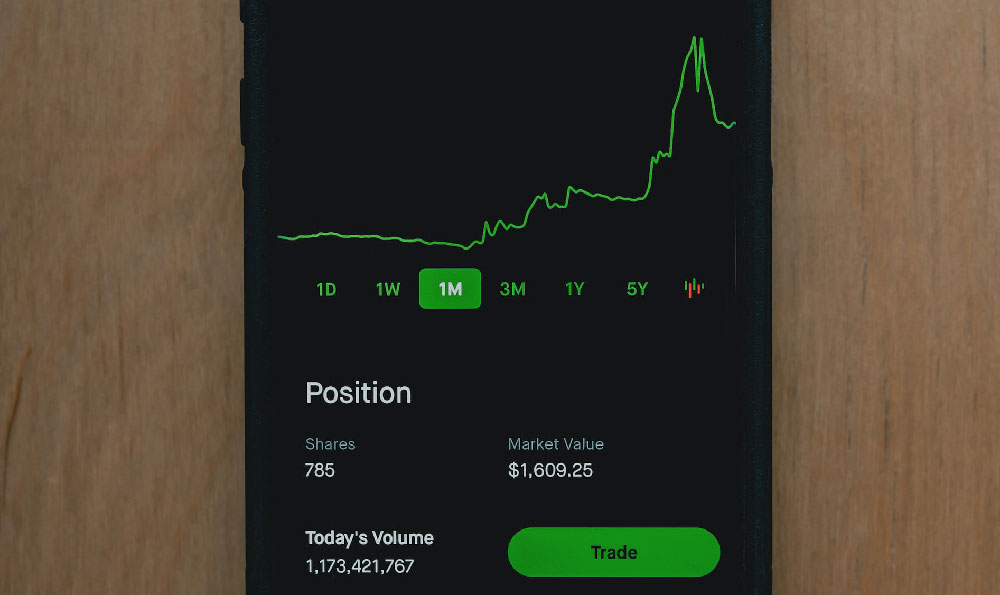TikTok's rise to global dominance has been nothing short of meteoric. Beyond the viral dances and fleeting trends, a question lingers in the minds of many: Can you actually make real money on TikTok? The answer, thankfully, is a resounding yes. However, as with any investment opportunity, particularly those emerging in the digital landscape, success hinges on a clear understanding of the platform, its nuances, and a strategic approach.
One of the primary ways to generate income on TikTok is through the Creator Fund. This fund, established by TikTok itself, allocates money to creators based on factors such as views, engagement, and adherence to community guidelines. While the specifics of the algorithm remain somewhat opaque, consistently high-quality content that resonates with a large audience is generally rewarded. However, relying solely on the Creator Fund is unlikely to make you rich. The payouts per view are relatively small, and the competition for audience attention is fierce. Think of it as a supplementary income stream rather than a primary source of wealth.
A more lucrative avenue for monetization lies in brand partnerships and influencer marketing. As a creator builds a substantial and engaged following, they become attractive to brands seeking to reach a specific demographic. These partnerships can take many forms, from sponsored content where creators showcase a brand's product or service to affiliate marketing, where creators earn a commission on sales generated through their unique links. To succeed in this realm, creators need to cultivate a strong personal brand and consistently deliver content that aligns with their target audience. Authenticity is paramount. Followers can quickly detect insincerity, and endorsements that feel forced or irrelevant can damage a creator's reputation. Furthermore, it's crucial to carefully vet potential brand partners to ensure their values and products align with the creator's brand and ethical standards. Accepting deals that compromise your credibility or promote harmful products can ultimately backfire.

Beyond sponsored content, creators can leverage TikTok to build and promote their own businesses. This could involve selling merchandise, offering online courses, or providing consulting services. TikTok's short-form video format is ideal for showcasing products, providing quick tutorials, or offering glimpses into the creator's expertise. The key here is to seamlessly integrate the promotion of your business into your existing content. Avoid overly aggressive sales pitches that can alienate your audience. Instead, focus on providing value and building trust, and let your products or services naturally emerge as a solution to their needs or interests. For instance, a fitness influencer could promote their online training program by sharing snippets of workout routines and offering motivational advice.
Another, often overlooked, method of monetization on TikTok is through livestreaming. TikTok allows creators with a certain number of followers to host live sessions, during which viewers can send virtual gifts. These gifts, purchased with TikTok coins, are then converted into diamonds, which can be redeemed for cash. While livestreaming can be a significant source of income for some creators, it requires a strong connection with their audience and the ability to engage them in real-time. Successful livestreamers often host interactive Q&A sessions, perform live demonstrations, or simply provide entertaining commentary on current events.
The world of cryptocurrency also intersects with TikTok, albeit with a higher degree of risk and caution required. Some creators have found success in creating educational content about blockchain technology, NFTs, and various cryptocurrencies. This content can attract viewers interested in learning about these emerging technologies, and creators can then monetize their expertise through affiliate marketing, sponsored content from crypto-related platforms, or by selling their own NFT creations. However, this area demands meticulous attention to regulation and ethical considerations. Promoting specific cryptocurrencies or investment opportunities without proper disclaimers and a thorough understanding of the risks involved can be harmful and potentially illegal. It's crucial to avoid making any guarantees of profit or implying that crypto investments are risk-free. Instead, focus on providing objective information and empowering viewers to make their own informed decisions.
Navigating the world of TikTok monetization requires more than just creating engaging content. It also involves understanding the platform's algorithm, building a strong brand, and fostering a loyal community. Treat your TikTok presence as a business, not just a hobby. Track your analytics, experiment with different content formats, and adapt your strategy based on what works best. Investing in high-quality equipment, such as a good microphone and camera, can significantly improve the production value of your videos. Engage with your audience by responding to comments, participating in challenges, and collaborating with other creators. Building relationships within the TikTok community can help you expand your reach and attract new followers.
Finally, it's imperative to approach TikTok monetization with a healthy dose of skepticism and a commitment to ethical practices. Be wary of get-rich-quick schemes and promises of easy money. Research any brand partnerships or affiliate opportunities thoroughly before committing. Disclose any sponsored content or affiliate links transparently to your audience. Remember that building a sustainable income on TikTok takes time, effort, and a strategic approach. While the platform offers immense potential, it's crucial to proceed with caution, integrity, and a long-term perspective. Treat your followers with respect, provide genuine value, and focus on building a lasting brand that resonates with your audience. Only then can you truly unlock the earning potential of TikTok and create a sustainable income stream.












